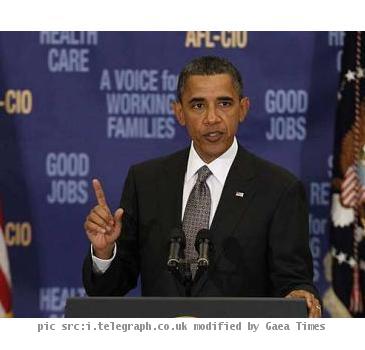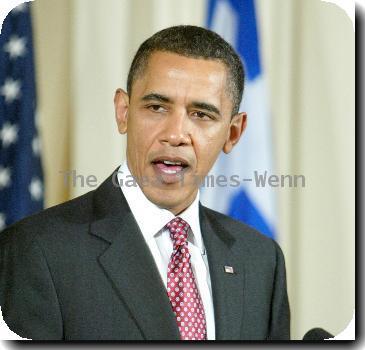US defense chief sees signs of progress in Afghanistan but says he’ll remain cautious
By Anne Gearan, APThursday, September 16, 2010
Gates: Surge seems to be working in Afghanistan
WASHINGTON — Evidence is building that the Obama administration’s surge strategy is working in Afghanistan, Defense Secretary Robert Gates said Thursday, citing recent assessments from the new top U.S. and NATO commander and Gates’ personal impressions from a recent trip to Afghan battlefields.
“I was encouraged,” Gates said, predicting that a critical year-end U.S. review of its own war plan would show that the strategy President Barack Obama put in place a year before is taking hold.
Gates’ upbeat assessment of the Afghan war comes as the Obama administration faces growing skepticism with the progress and direction of the war. The campaign against the Taliban insurgency in Helmand and Kandahar provinces this spring and summer has yielded uneven results and taken longer than planned, and the U.S. has suffered setbacks in its effort to curb corruption in the Afghan government.
“We need to have confidence and be able to demonstrate, I would say in four to six months, that we are moving in the right direction; we are moving toward the accomplishment of our goals,” Gates said. “I think there is a general feeling that there has been some progress in that area, but it will have to be sustained.”
Gates said that with the addition of 30,000 forces this year, war commander Gen. David Petraeus sees the beginning of a turnaround in the nine-year war. Gates endorsed that assessment in remarks Thursday at the Pentagon.
Despite his overall optimism, Gates cautioned that the United States won’t make the mistake in Afghanistan of predicting success too soon. The lessons of Vietnam and the disastrous Soviet occupation of Afghanistan loom nearly as large as the prolonged U.S. military involvement in Iraq.
“Most of us try to err on the side of caution because of previous experiences, particularly in Iraq, of people perhaps being too optimistic, and certainly too optimistic prematurely,” Gates said.
As in Iraq, the United States is trying to blunt enemy momentum with a massive though temporary infusion of U.S. forces.
Speaking with reporters following a meeting with French Defense Minister Herve Morin, Gates said that all but a handful of the 30,000 extra troops had arrived by the end of last month, meaning that for the first time Obama’s revamped war plan can be evaluated in full.
Commanders have sent most of the additional troops into heavy fighting against the Taliban-led insurgency in the volatile Afghan south.
Gates had said in June that the U.S. and its NATO partners would need to show progress before the end of this year or face the collapse of public support at home.
On Thursday, the defense chief said Afghanistan has a “capable and competent” plan for handling security during this weekend’s parliamentary elections. U.S. forces will provide backup where needed, as they did during last year’s fraud-marred presidential vote.
Afghans go to the polls Saturday to cast ballots in a contest considered a test of whether President Hamid Karzai’s government can run a fair vote and keep insurgents from interfering.
Both the Taliban and Hizb-i-Islami, an insurgent group under the leadership of warlord and former Prime Minister Gulbuddin Hekmatyar, have criticized the elections and urged people to stay home.
Afghan officials sought to reassure wary citizens on Thursday that it will be safe to vote.
Gates stopped short of predicting a completely clean election this time, saying hopes for a “credible” vote and minimal postelection violence or squabbling.
Tags: Afghanistan, Asia, Barack Obama, Central Asia, Iraq, Middle East, North America, United States, Washington



